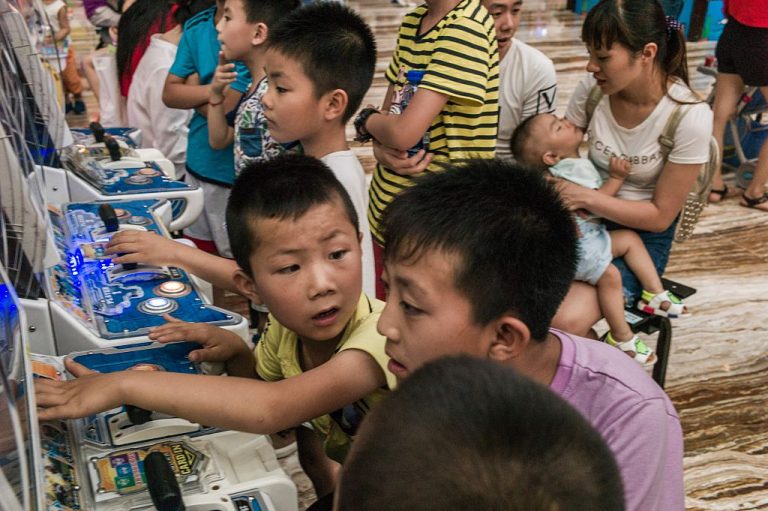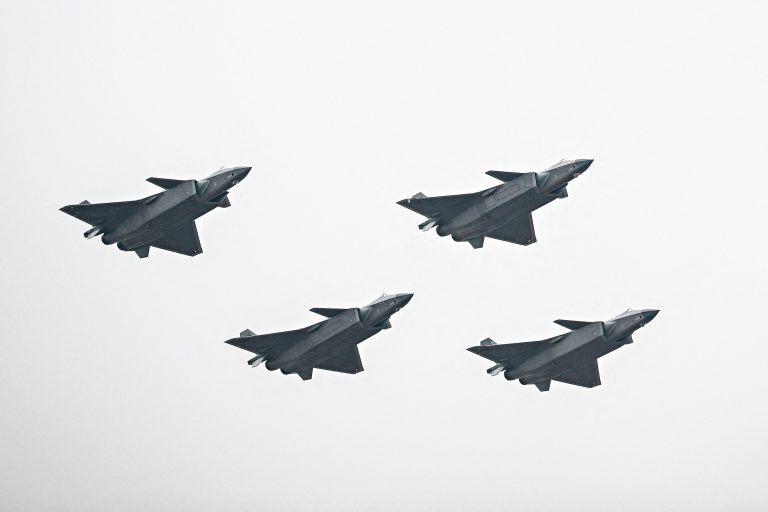Chinese tech company Tencent has announced that it will curb minors’ access to the popular video game “Honor of Kings” after shares fell in response to a scathing article by state-backed media Economic Information Daily. The article had termed Tencent products as “spiritual opium,” a reference to items that can be mentally addictive and cause psychological or physical damage.
“‘Spiritual opium’ has grown into an industry worth hundreds of billions… No industry, no sport, can be allowed to develop in a way that will destroy a generation,” the newspaper said on July 3.
The article was based on Economic Information Daily’s survey with 1,929 students from Luzhou City. Around 2.28 percent of the students who took part in the survey admitted to playing “Honor of Kings” for more than five hours per day; some kids even played eight hours. The newspaper interviewed several parents, who characterized game addiction as an unsolvable problem.
One father, surnamed Xia, told the media outlet that his son’s academic scores had plummeted after he began playing video games. In a recent math test, his son received a score of 30 out of 100.
“I have broken five or six of his cellphones… [Because I stopped him from playing video games] he jumped out of the balcony on the second floor, and didn’t come home for the whole night. Since then, I haven’t dared to discipline him,” Xia said.
Success
You are now signed up for our newsletter
Success
Check your email to complete sign up
In the article, Chinese officials stated that spending long hours on video games can lead to minors developing a wide range of problems like depression, shortsightedness, suicidal tendencies, insomnia, refusal to go to school, and violence.
According to new measures announced by Tencent following the article, players who are 12 years and under will be banned from spending money in the game. Minors will only be allowed to play games for one hour per day on non-holidays, down from 1.5 hours. For holidays, the time limit has been brought down from three to two hours. The company also called for an industry ban on gaming for kids below 12 years of age.
In June, a public interest group “Beijing Teenagers Law Aid And Research Center” filed a lawsuit against Tencent for inappropriate content for minors in Honor of Kings.
“Game characters’ clothing is too revealing, while there is a lot of … low-taste content that is inappropriate for teenagers on its website and forums,” the group said. It also complained that the storyline (of the game) had tampered with historical figures and lacked respect for traditional Chinese culture.
Stock market impact
At the Hong Kong stock exchange on July 3, Tencent’s share value fell more than 10 percent within one and a half hours of market opening, wiping out $60 billion from the company’s market capitalization. Market analysts felt that the article might be a prelude to Beijing cracking down on the video game industry.
By noon, Economic Information Daily removed the article from its website. Instead, it published a scanned version of the newspaper report. It’s unclear why the media outlet decided to do so. Though stock prices rebounded by the end of the day, it remained below the opening price.
NetEase, a Chinese video game supplier, saw share prices dip by more than 12 percent. Stock prices of Chinese video game companies like XD and CMGE also declined by over 8 percent and 13 percent respectively on Tuesday.
“Fears over Chinese regulatory interference aren’t going away, with Tencent the latest stock to slump on chatter about Beijing seeking to wield its power… [Tencent’s shares] are now down by more than a fifth year to date as investors reassess their willingness to have exposure to big Chinese names,” Russ Mould, investment director at AJ Bell, told The Guardian.
Over the past several months, the Chinese communist regime has been cracking down on tech companies, such as Alibaba and Didi. Beijing has also announced a ban on companies offering tutoring services. According to Kenny Wen, wealth management strategist at Everbright Sun Hung Kai, the government’s actions regarding online education, data security, and mobile games have created “policy uncertainty.”
“So the future will be highly uncertain, it is difficult to give a fair valuation on these stocks and investors will take a wait-and-see approach and be relatively prudent in this sector as we don’t know what will happen next,” Kenny said to Associated Press.
Government suppression
On July 24, the Chinese State Administration for Market Regulation classified Tencent’s acquisition of China Music Group as illegal. It fined Tencent $75,000 and ordered the entertainment company to terminate the exclusive rights to music streaming within 30 days. The bureau also asked the tech firm to submit an annual performance report for the next three years.
The communist regime has used its “anti-monopoly” law to crackdown on Tencent, which it uses to restrict the power of tech companies. However, Tencent has largely avoided any major conflict from the government. For example, the company has only been fined three times for a total of $675,000. In contrast, Jack Ma’s Alibaba was fined $2.73 billion in a single instance on April 10.
In an op-ed at The Epoch Times, journalist Alexander Liao explains that Beijing has been softer on Tencent because the company has closely worked with the CCP, helping the government monitor its population.
“This is the key difference between Tencent and Alibaba. Until recently, Alibaba did not fully share corporate data with the authorities, and Tencent shared all data with the authorities from the beginning. Now, the CCP is cracking down on Alibaba while letting Tencent slip through the cracks,” Liao writes.















